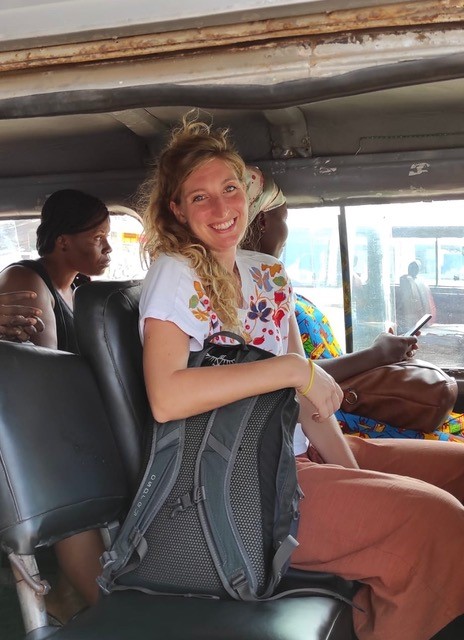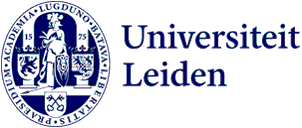
Anthropological Research Opportunities for Masters Students in Ghana and Morocco
Costanza Franceschini is working on the Sea-ing Africa project as a project coordinator for Masters students who will be conducting research in Ghana and Morocco. "We have great research opportunities for students who want to explore contemporary Africa through an anthropological lens." In this article, she explains what Sea-ing Africa has to offer Masters students.
Taking people seriously
Anthropology has played an important role in Costanza's life ever since she attended her first class during an undergraduate open day. "I felt that studying anthropology was transformative because it allowed me to be involved in something revolutionary. In an age dominated by simplification and easy answers, anthropology stands out as a discipline that embraces complexity and critical perspectives. It encourages us to take people seriously, to recognise that wisdom is everywhere, and to think with people rather than just study them. My collaborations with researchers and professors in Ghana, China and Italy have taught me the profound importance of understanding and considering different perspectives, even when they challenge our expectations".
Sea-ing Africa
At Leiden University she is currently working on two projects: the PortCityFutures and the Sea-ing Africa Project. The latter, 'Sea-ing: Tracing Legacies and Engaging Future Promises of Big Infrastructure Projects in Port City Regions in Ghana and Morocco', examines the impact of infrastructure planning, design, construction and maintenance on development in Africa. This project is in line with the recent infrastructural turn in socio-cultural anthropology. The research aims to explore how infrastructure projects such as ports, railways and roads intersect with politics, economic systems and cultural values, and how they affect local citizens.

The interconnectedness of land and sea in Ghana and Morocco
Costanza: "We chose Ghana and Morocco to challenge the traditional scholarly division between North Africa and Sub-Saharan Africa, and to examine these regions from a unified African perspective that connects sea and land." This ties in with the PortCityFutures project, which also examines the interconnectedness of sea and land in port city regions. As part of the project, Costanza will also support and supervise Masters students travelling to Ghana.
Research opportunities for Masters students
The project will select a total of 10 Masters students from the three Masters programmes at the Institute of Cultural Anthropology and Development Sociology: Global Ethnography, Policy and Practice and Visual Ethnography, as well as students from the Master’s in African Studies. Five students will be based in Ghana and five in Morocco.
The project focuses on the complex, multifaceted phenomena of infrastructure development in the port city regions of Ghana and Morocco. It addresses critical issues of development, modernity, environmental challenges, labour dynamics and global-local interactions that shape African societies. By participating, students will engage with fundamental issues affecting Africa's present and future, and gain insights into the aspirations, hopes and persistent inequalities within these contexts. Costanza: "If you want to explore and contribute to the study of Africa's future, this project is an essential platform for your academic and professional growth."

Bi-weekly seminars to prepare for fieldwork
Students have the opportunity to conduct research in Ghana and Morocco under the supervision of experienced professors. In preparation for their fieldwork, they will attend bi-weekly seminars from September to December, focusing on the context of their research and the challenges of conducting fieldwork in African settings. These seminars will cover important issues such as positionality, participant relations and essential literature on their specific research topics.
Enriching their research experience: workshop in Rabat
Before embarking on their fieldwork, students will attend a workshop in Rabat, Morocco, in mid-January, which will provide a valuable opportunity to collaborate and reflect on research methods with local students and professors from Morocco and Ghana. This interdisciplinary workshop will include exploratory research activities and discussions with anthropologists, architects and engineers, fostering a broad understanding of infrastructure planning and design. Following the workshop, the students will be accompanied by their supervisors to their field sites in Ghana and Morocco, ensuring that they begin their research with strong support. Costanza: "I really encourage all Masters students to apply for these research positions. It's a unique opportunity to be part of a multidisciplinary project that will enrich their network. They will engage in meaningful conversations and collaborations with peers, supervisors and local students, enriching their research experience".

Costanza Franceschini began her academic journey with a bachelor's degree in intercultural communication from the University of Turin, Italy. She then went on to complete a Master's degree in Cultural Anthropology and Ethnology at the same institution. After completing her Master's degree, she began a PhD in Cultural and Social Anthropology at the University of Milan-Bicocca. She was awarded her PhD in May this year and a few days later, in June 2024, she started her new job as a postdoc at the Institute of Cultural Anthropology and Development Sociology at Leiden University.
